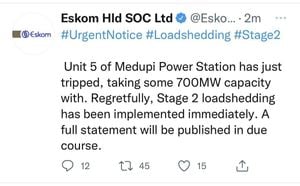Hamas has raised significant concerns over Israel's failure to release the seventh batch of Palestinian prisoners as stipulated in the recent agreement, calling the delay "a blatant violation" of the exchange deal struck between the two parties. This tension escalates amid long-standing hostilities, raising questions about Israel's commitment to the ceasefire and future negotiations.
According to Hamas spokesperson Abdel-Latif al-Qanou, the lack of adherence to the agreed timeline for releasing prisoners demonstrates bad faith from Israeli Prime Minister Benjamin Netanyahu's administration. "Non-compliance with the release of the seventh batch of prisoners at the agreed time is a blatant breach of the agreement," said al-Qanou, highlighting the frustration felt by many within the Palestinian community.
The agreement, which initially aimed to secure the release of 620 Palestinian prisoners, has been complicated by Israeli political maneuvering. Reports indicate Netanyahu is currently engaged in emergency consultations to reassess the situation before proceeding with the release of detainees. During these discussions, Israeli media pointed out, "the political leadership has not yet issued instructions for the release of Palestinian detainees."
Hamas has also expressed concern for the wellbeing of the prisoners involved and reiterated its commitment to pressure through mediation from Egypt and Qatar. Al-Qanou noted, "The enemy will find no mediators or guarantors if it violates the agreement and denies our prisoners their rights," warning of potential repercussions for Israeli-Palestinian relations.
This delay raises broader concerns about the feasibility of achieving stable peace. With the ceasefire agreement hinging on trust and cooperation, the potential for renewed violence looms if parties fail to comply with their obligations. The situation is particularly precarious for civilians living under heightened tensions, as the aftermath of military operations continues to affect countless families on both sides.
Historically, mediation attempts have involved regional players like Egypt and Qatar, tasked with stabilizing the volatile political climate. Their roles have been particularly pertinent during instances of dramatic escalations, yet the current state of affairs highlights the increased demands for diplomatic intervention.
Meanwhile, internal pressures within Israel pose additional complications, as political factions push for decisive and often aggressive stances against perceived threats, exacerbated by public opinion and security concerns. It is indicative of the constant balancing act leaders face between international obligations and internal pressures.
Reflecting on the current predicament, al-Qanou suggested, "The trust meters among the factions are low; our expectations for real progress dwindle if these agreements are not fulfilled." The concern is not just for the current batch of prisoners but for the overall stability of the region and the prospects for peace moving forward.
Navigations of these negotiations remain contingent on both sides demonstrating goodwill, and whether they can move past decades of distrust to forge new paths forward remains uncertain. The eyes of the international community will continue to watch, as many hope for lasting solutions amid continued strife.
With all these pressures converging, it appears the likelihood for renewed cycles of negotiation hang precariously on mutual compliance. The true test lies not just within the scope of prisoner exchanges, but also encompasses the broader aim for enduring peace.



